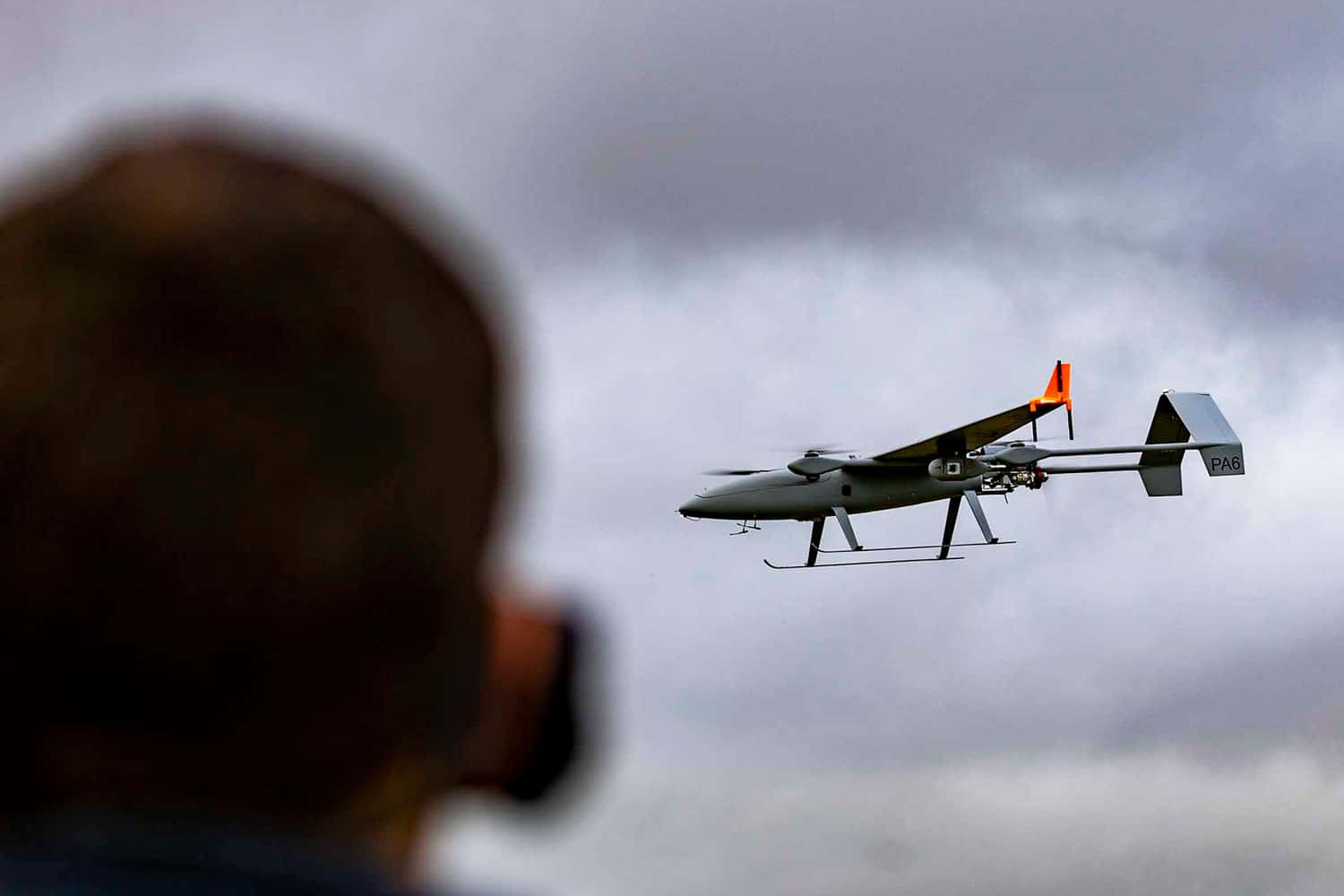
The British Royal Air Force (RAF) has successfully completed the first drone flight using synthetic kerosene as part of an ongoing effort to reduce carbon footprint and create a more sustainable future.
Working with British company C3 Biotechnologies Ltd and the US Navy, the initial trials created about 15 liters of synthetic fuel in laboratory conditions to test the engine. Following successful engine testing, the four-meter-long fixed-wing drone completed a 20-minute test flight in Wiltshire in South West England, providing valuable data that indicates the fuel performs consistently to a high standard.
“The RAF needs to ensure that we are at the forefront of technology to safeguard our own resilience and operational capability whilst minimizing our damage to the environment,” Air Vice-Marshal Lincoln Taylor said. “Fuel scarcity and cost will only ever increase in its impact on our operations, and synthetic fuels for our aircraft are one potential solution to this situation as we look to secure the objectives of the next generation RAF of tomorrow.”
The RAF and partners are continuing with the next phase of Project Vermeer in the UK that will see the C3 Biotechnologies refine the production process and develop deployable manufacturing facilities capable of producing fuel without major supporting infrastructure. The C3 Biotechnologies synthetic kerosene is a greener alternative to fossil fuels, made by mixing raw materials with high sugar levels, such as food waste, with bacteria to create an oil substance that is then converted into aviation fuel using chemicals and heat. Synthetic kerosene can be made anywhere, making it an attractive option for military deployments around the world.
The breakthrough signifies the RAF’s commitment to creating a more sustainable future as it can be used across all platforms, from remotely piloted air systems to fighter jets.
Last year, RAF set a new Guinness World Record for the world’s first successful flight using only synthetic fuel.
RAF completes first successful drone flight using synthetic fuel
Source: Global Access News

No comments:
Post a Comment